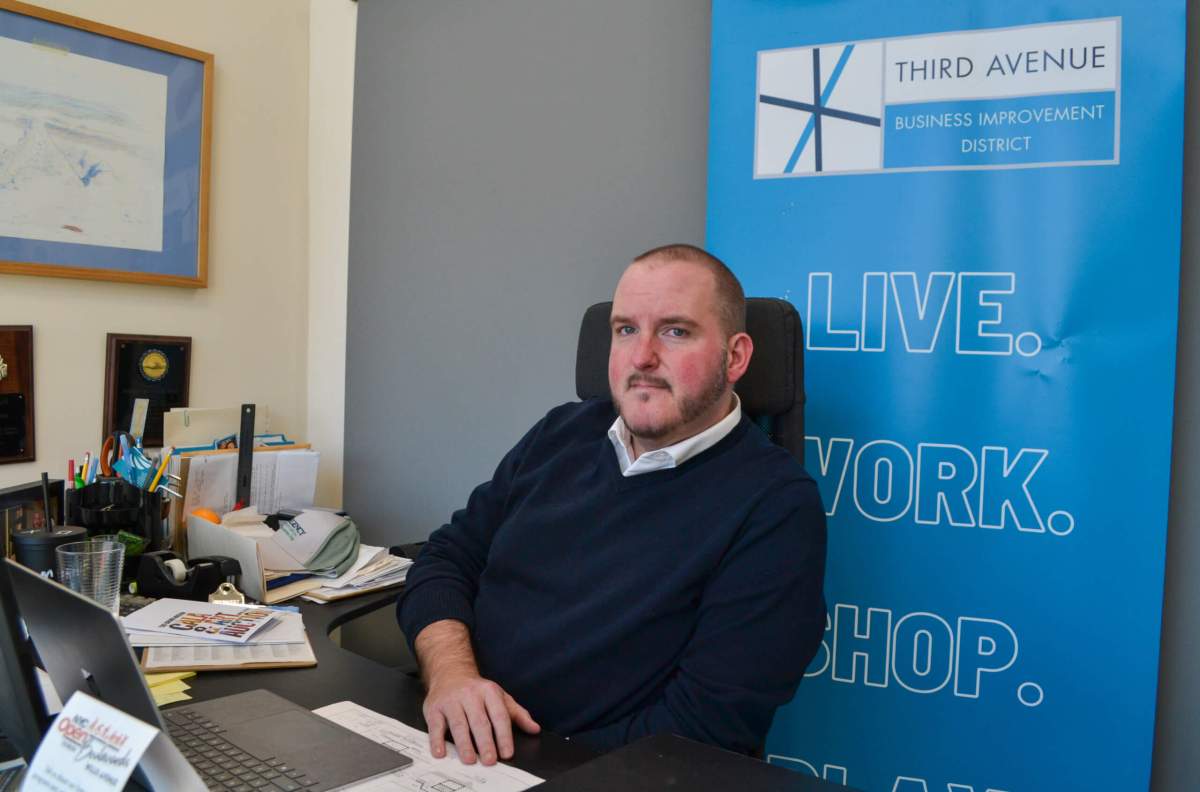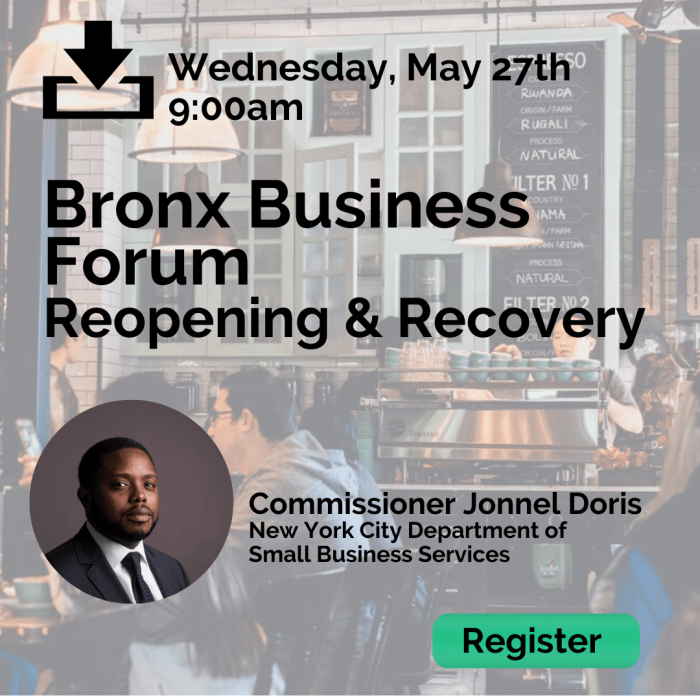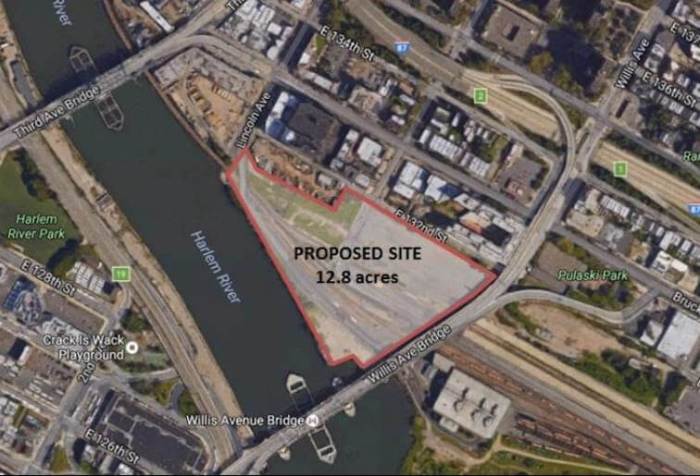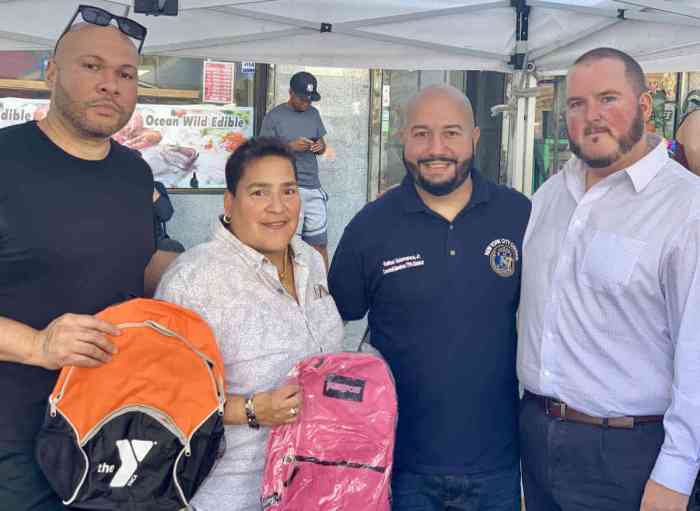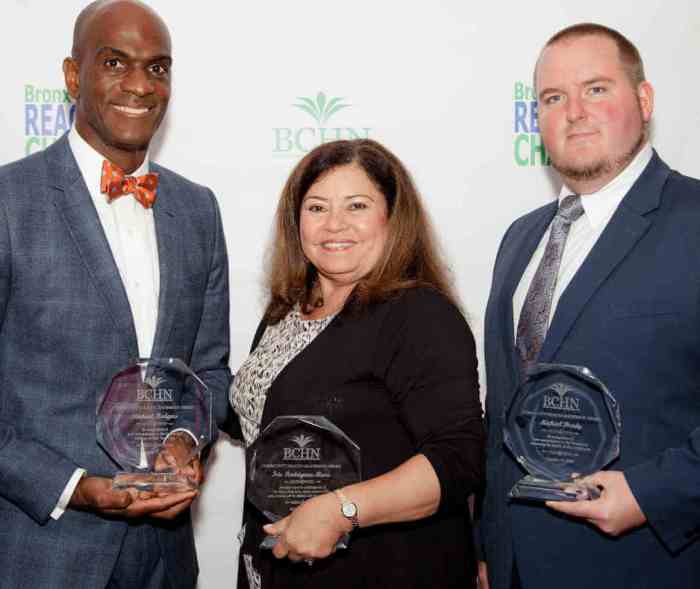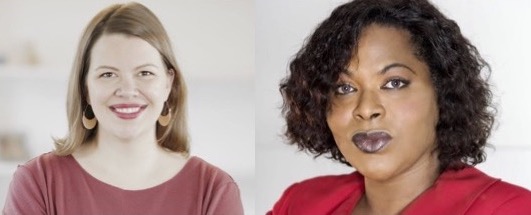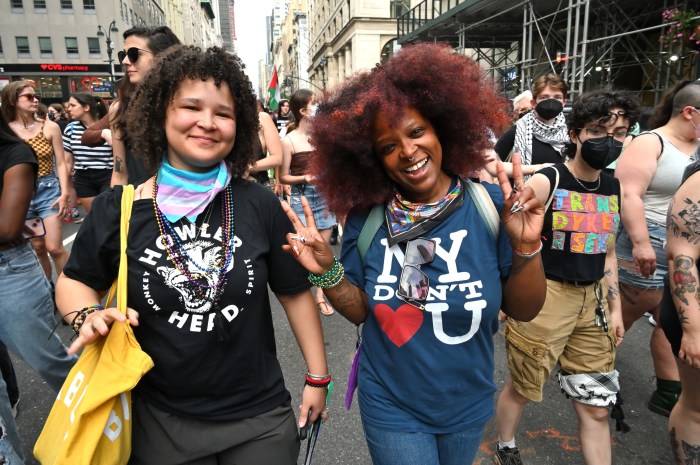It’s the first week in seven years that Michael Brady isn’t the CEO of the Third Avenue Business Improvement District (BID).
Brady, whose last day was Wednesday, stepped down from the role, saying it’s time for new leadership.
“I’m tired,” he said with a laugh.
His general rule of thumb is that it’s time to move on after six or seven years in a position, he added.
“I’m still going to be around, I’m just approaching it from a different lens,” said Brady, 39. “I don’t want to be in the way of progress, and after seven years of leading an organization, it’s time for a new leader to come in with the same energy that I had seven years ago and keep it moving, keep it going.”
After he takes a break, Brady plans to be involved with three or four large-scale development projects, do some consulting work and continue his involvement with the Bronx Chamber of Commerce. Now a longtime South Bronx resident, he also co-owns Bar 47 on Bruckner Boulevard.
Supporting South Bronx businesses through COVID-19, in particular, proved to be tiring. The BID stayed open through the pandemic, Brady said, fundraising and disseminating $1.4 million in business grants and being a “bully” toward city, state and federal governments to ensure resources, like Paycheck Protection Program loans, were equitably distributed to the South Bronx.
When he started the post in 2016, Brady sought to both improve the organization itself and “be the best cheerleader possible” for the South Bronx. He wanted to dispel the belief that the area can only have one thing or another.
“We want affordable housing, and market rate housing, and low income housing, and more diverse high quality retailers,” he said. ” … And changing that false narrative that we can only have one thing or another was really big for me that first year. And admittedly, I have a very loud mouth that sometimes gets me into trouble. But in this particular case, I think it was helpful.”
Brady brought the BID out of a financial deficit, growing its budget to more than $2 million in a four-year period and multiplying its staff by four-fold, he said. He worked to attract new businesses to the area, led efforts to rehabilitate vacant properties and secured financing for 2,300 units of new housing. He met with community groups, but he also sat in board rooms, working to secure both private and public investment in the South Bronx.
Not everyone liked that.
He said that at one point, protestors hit a piñata of him in front of his office.
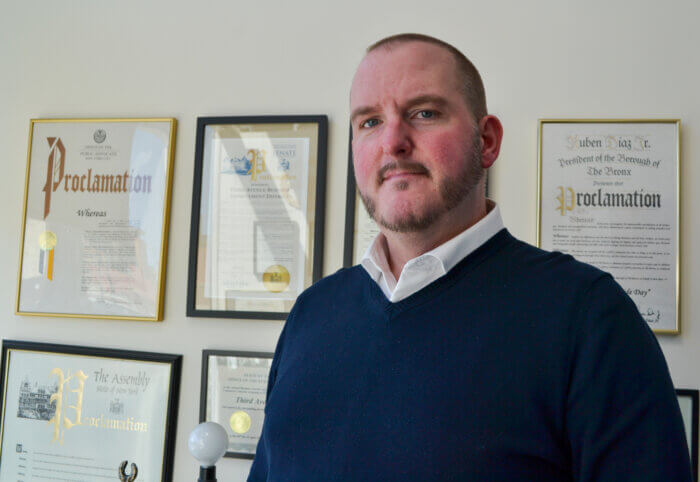
Brady thinks a lot of pushback against him comes from distrust — both with him being a white man and from fears he was selling out the neighborhood by meeting with developers, property owners and the MTA. But he believes that those against him have the same end result in mind.
“We want local wealth building, we want people from the neighborhood, people of color who have been disenfranchised for so long to have authentic power within the New York City structure,” he said. “I think we disagreed on how to get there.”
Originally from Albany, Brady moved to the Bronx at 17 years old to pursue his undergraduate studies at Manhattan College and never left the borough, he said.
He landed in the South Bronx after graduating college in 2005 to pursue a public service project at the former St. Augustine’s parish and parochial school for his public administration master’s at New York University. He worked as the church’s director of institutional advancement for seven years, and got his footing in local fundraising and community organizing.
From there, he got a taste of South Bronx development, working as a consultant and then the senior director of special projects and governmental relations at the South Bronx Overall Economic Development Corporation (SoBro). At SoBro, Brady led efforts for the redevelopment of brownfield sites, working as the master planner for the Harlem River waterfront through the state and project director for the Sheridan Expressway Redesign through the federal EPA with hopes of bringing sustained economic growth to the area.
By 2016, he was ready to shift his focus inland onto retail corridors, like The Hub, bringing him to the BID.
Brady helped push through development for upper level retail, like the Bronx Coworking Space at 2825 Third Ave. and the redevelopment of vacant lots like the La Central complex. He also supported building rehabs, like the conversion of a former department store to the Marshalls shopping center on Third Avenue and 153rd Street. Brady is also known for his work getting the Roberto Clemente Plaza completed, which had been long-stalled and faced a ballooning budget before opening in 2018.
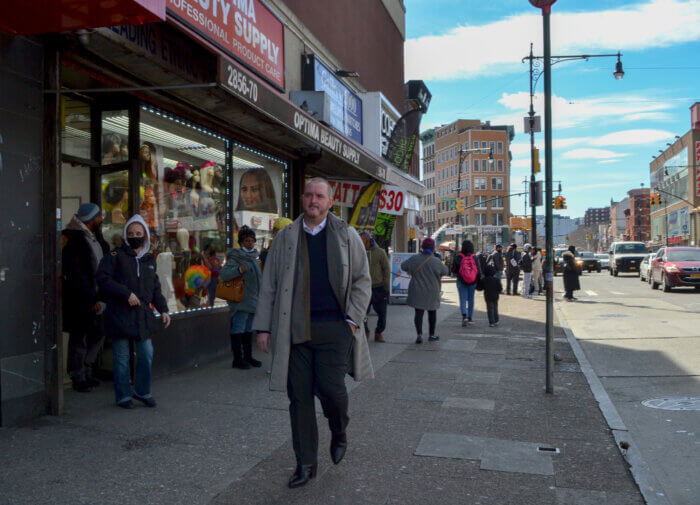
He also worked on public engagement during the planning stages for the extension of the Clock Tower apartment building and Betances VI, a supportive housing building. He did the same for Third at Bankside and The Arches, which are high rises that have drawn eyes to a developing South Bronx skyline.
“There are a lot of very high-end market rate units that are coming on that I don’t know will be fully occupied,” he said. “But we’ve given fair warning to folks during their construction process that they might want to rethink their proforma.”
Brady is aware of the impacts new development can have on locals. He said he expects to see secondary displacement over the next three or four years as the South Bronx gentrifies, with local prices going up, from the cost of coffee to commercial rents.
But he also has a laundry list of ideas for ways to prevent displacement, from strategic wage increases and workforce programs to changes in how area median incomes and property taxes are calculated.
And the right retail mix, Brady said, may mean being able to buy a $6.75 marzipan latte at a fancy coffee shop while still being able to pick up a $2.25 coffee at the bodega or $1.25 cup at the coffee cart.
“If we’ve done what we have to do on our end to invest in our people and create the right systems and structures to make sure that people are making a real wage, and we’ve done what we have to do to keep costs under control, like health care costs and things of that sort, then we will be fully armed to really handle displacement,” he said.
The BID has grappled with these issues by rebuilding its board to better reflect the South Bronx community, creating a community advisory board and putting out a survey to dictate the organization’s budget approach each year.
At the end of the day, Brady believes he has left the BID’s South Bronx jurisdiction in better condition than it was before, and hopefully on a sustainable trajectory.
“It required someone to have the very blunt conversation, the courageous conversation, that this neighborhood had been neglected for so long, it is unconscionable to further neglect it,” he said. “So let’s break down these systemic challenges that are rooted in racism, that are rooted in classism and let’s just do the work.”
Reach Aliya Schneider at aschneider@schnepsmedia.com or (718) 260-4597. For more coverage, follow us on Twitter, Facebook and Instagram @bronxtimes

